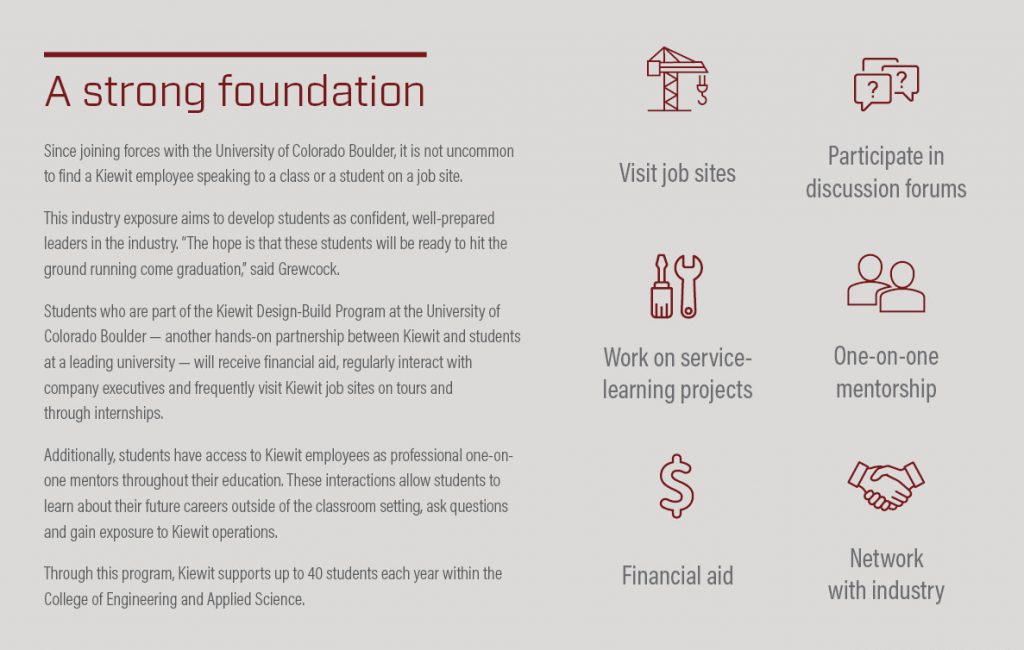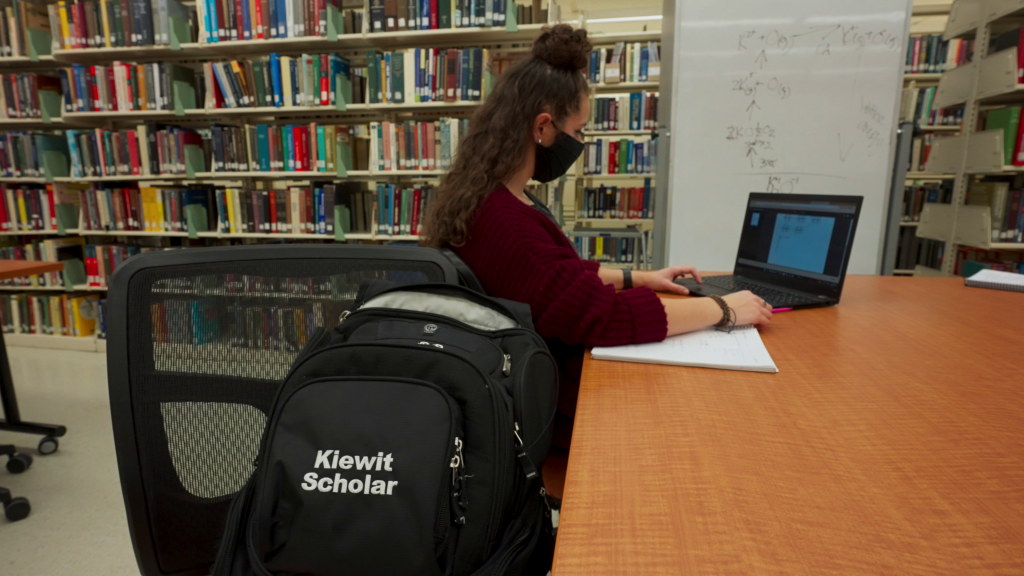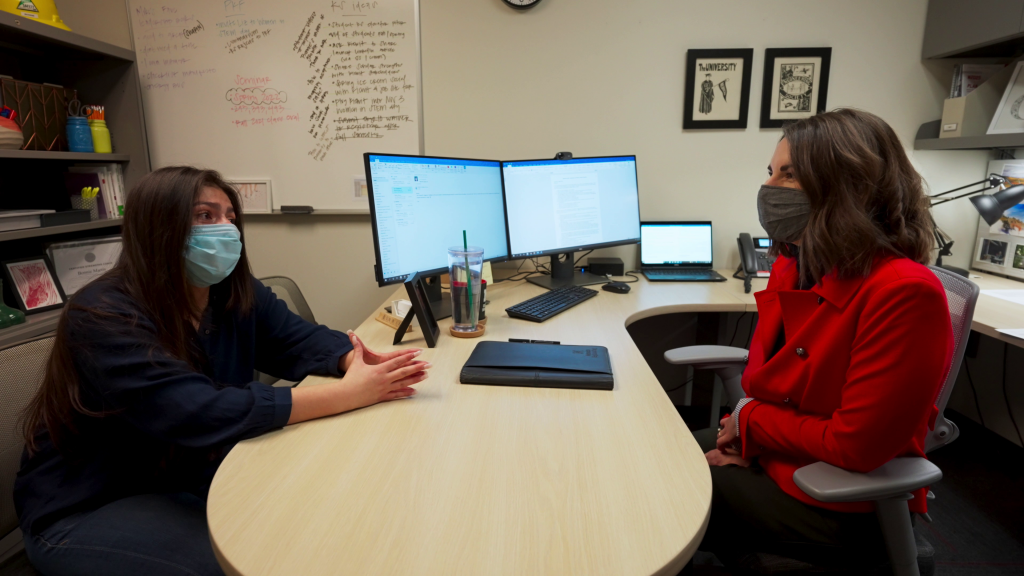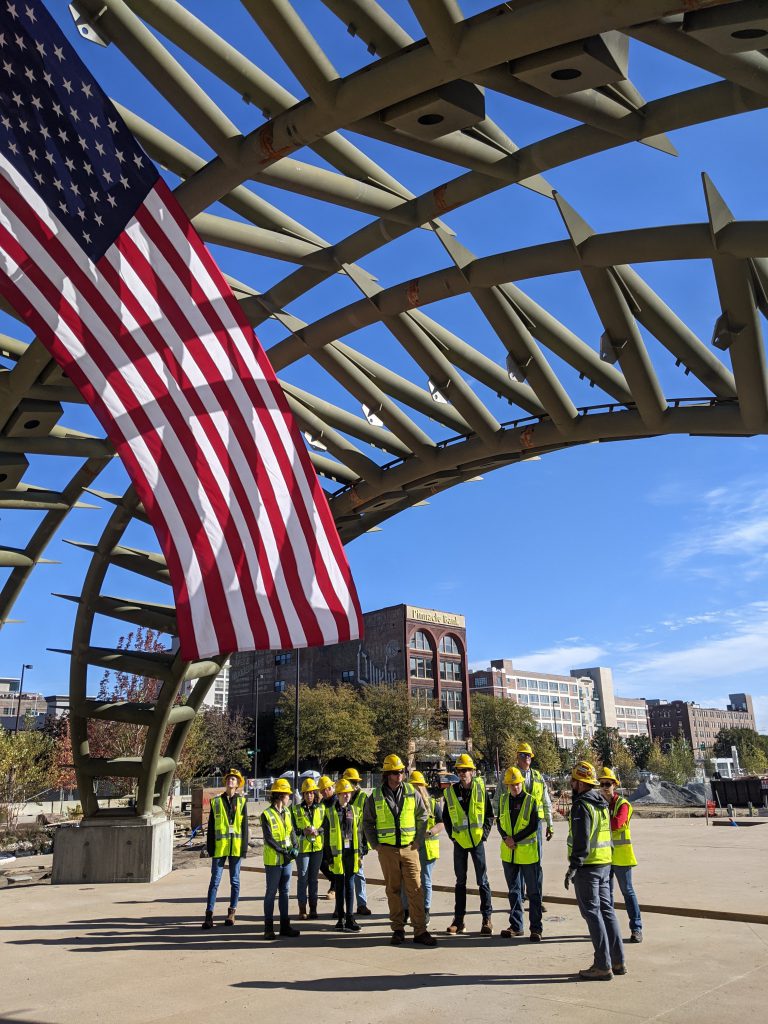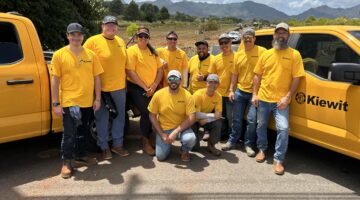Experience, exposure and excellence
For most college students receiving a scholarship, their investor’s involvement starts and ends at the university’s financial aid office. Students may write a thank you letter after four years, meet briefly at a school event or never even know who is supporting their education. Kiewit saw this and believed there was a much more meaningful way to not only invest in students through significant scholarships, but to forge a long-term partnership with the young talent — and the universities they attend.
With a focus on providing tuition and textbooks for students, as well as impactful experiences in the engineering and construction industry, Kiewit is focusing on scholarship programs that set students up for long-term success in their careers. Direct contact with the company and employees is integral to that mission.
“The classic engineering education will only take you so far,” said Bruce Grewcock, chairman of Kiewit’s Board of Directors. “We want programs that create opportunities for students to understand the complex world we work in.” This complex world requires a complex program to prepare students for success in their careers. Outside of the technical knowledge it takes to graduate, students in Kiewit scholarship programs will be expected to cultivate their leadership and professional skills during college.
The universities that Kiewit wants to partner with must have an expectation of excellence that is foundational to Kiewit careers.
“These programs allow us to put our Kiewit DNA into the curriculum they are being taught,” said Doug Glaser, Kiewit executive vice president. “Students learn our tools and processes, the way we think and do business.”
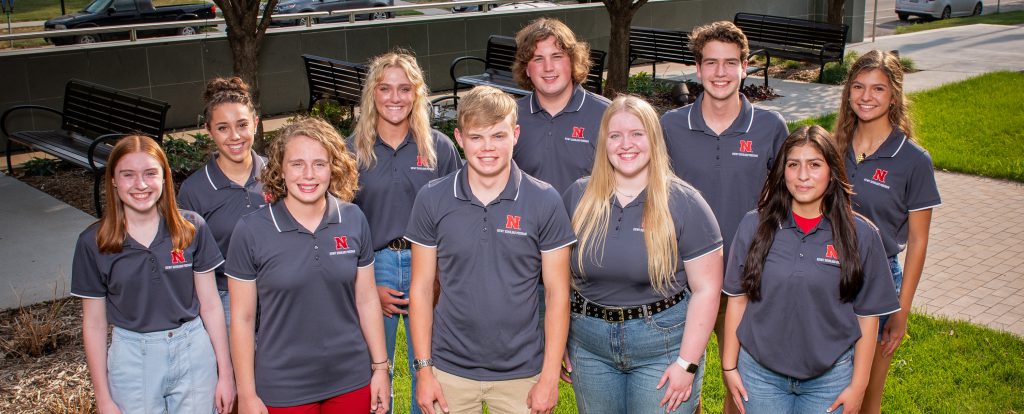
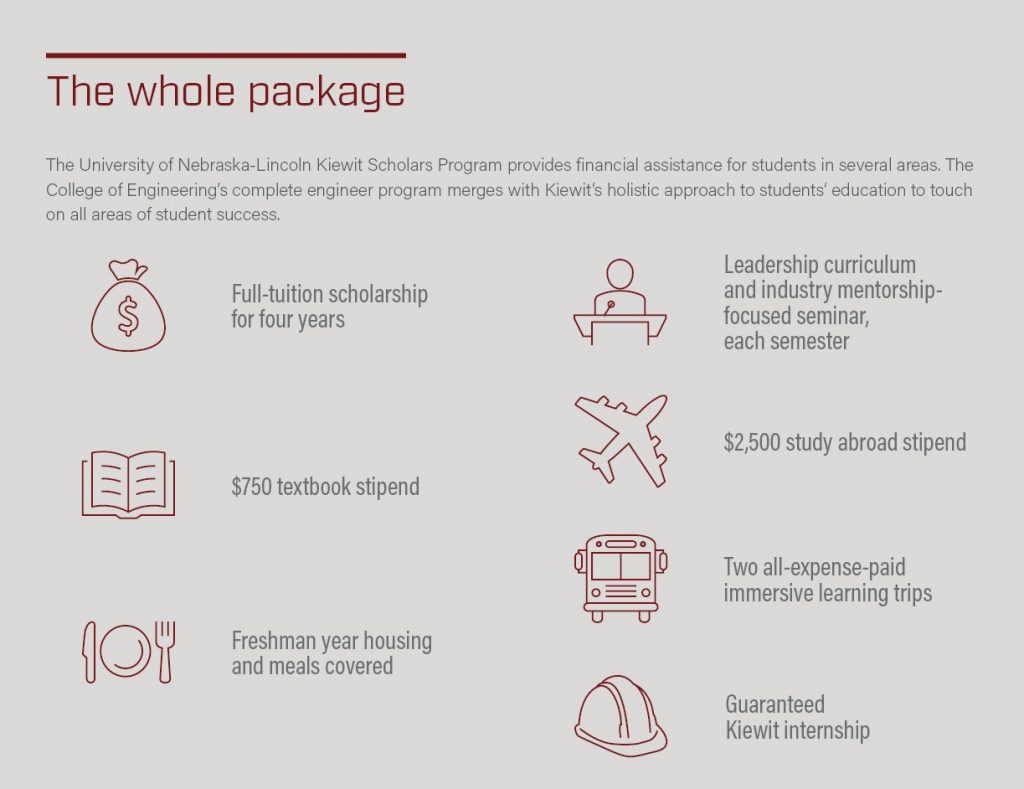
A holistic approach
One of the first partnerships out of the gate was with the University of Nebraska-Lincoln (UNL). Called the Kiewit Scholars Program, the partnership involves Kiewit employees not only funding the financial component of the program, but also serving as curriculum partners, mentors and guest speakers.
“This level of financial commitment, but perhaps more importantly, the time committed from these leaders in the field is impressive and very valuable for our UNL students,” said Bonnie Shuda, director of Engineering Scholar Programs at the university.
Shuda teaches the Kiewit Seminar course, attended each semester by all students with scholarships in this program — they are called Kiewit Scholars. These students focus on leadership skills and regularly hear from Kiewit employees. In her opinion, this cohort is unlike any other.
“These students are so professional within a few weeks,” said Shuda. “Simply being exposed to Kiewit folks, truly before they even start school, has influenced everything they do on campus.” From club memberships to running for leadership positions across the university, Kiewit Scholars are challenged to practice their leadership skills outside of the classroom and among their peers.
The 2021 Kiewit Scholars cohort consists of 10 engineering students ― seven women and three men ― with majors ranging from civil and mechanical engineering to construction engineering and management. Each student was selected through a series of applications and interviews.
“For the University of Nebraska-Lincoln, one of the key elements that sets this Kiewit Scholars Program apart from others is the heavy industry involvement,” said Shuda. “Kiewit has been hands on from the inception of the program.”
For some students, this Kiewit Scholars Program has made all the difference.
Taylor Hosick, a Kiewit Scholar at University of Nebraska-Lincoln, is majoring in construction engineering.
Felicity Sierra (left), a Kiewit Scholar at University of Nebraska-Lincoln, meets frequently with Bonnie Shuda, the director of Engineering Scholar Programs.
The builders of tomorrow
Felicity Sierra, a freshman mechanical engineering student and Kiewit Scholar, always knew she wanted to go to college and study engineering. Growing up in a working-class home with four older brothers, Sierra understood early on that scholarships would play a vital role in her ability to attend a university.
“I refused to go somewhere that would be a burden on my family,” said Sierra. “With Kiewit Scholars, I thought, this is my opportunity.” Sierra is the first in her family to attend college and she intends to make every experience count.
During their first semester in the program, students visited the Riverfront Revitalization Project in Omaha, Nebraska. It was after this event that Sierra changed her major from computer engineering to mechanical engineering. “I never expected to do that,” said Sierra. “To get work boots, have the hard hat on, it was definitely eye-opening.”
“These students see the reality of their degree right away,” said Shuda. “They are able to hear from the project manager, tour the site and truly see their major in action, perhaps before their peers do.”
Outside of the school year, students will be able to experience Kiewit on a national scale through internships. All University of Nebraska-Lincoln Kiewit Scholars will intern with the company at least once during their college years. And while most students are from the Midwest, these internships can take place across the country.
“We provide those opportunities for them to go and see other places,” said Glaser. “And hopefully they all come work for us. As we keep this thing going, they can be testimonials to the importance and value of these programs.”
Programs like this also serve Kiewit from a recruiting standpoint by getting students excited about not only a career in construction and engineering but a career with Kiewit, a company dedicated to their success before they even receive their diploma.
Taylor Hosick, who is a freshman construction engineering student and Kiewit Scholar, believes the opportunity will be a valuable challenge. “They have such high expectations of excellence, which I feel prepares me for my career.”
This holistic approach of mentorship, industry experiences, curriculum and financial aid has been intentionally aimed at doing just that. Kiewit programs lend themselves not only to creating meaningful careers but future success for the industry as a whole. The builders of tomorrow are in the classroom today.
“Somebody helped shape me and mentor me and now that is what we get to do with these kids,” said Glaser. “It’s about giving that person a chance and I know it’s going to be so rewarding to see these students grow over the years.”
